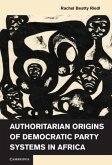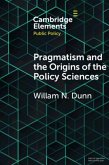The issue of religious liberty has gained ever-increasing attention among policy makers and the public. Whereas politicians have long championed the idea of religious freedom and tolerance, the actual achievement of these goals has been an arduous battle for religious minorities. What motivates political leaders to create laws providing for greater religious liberty? In contrast to scholars who argue that religious liberty results from the spread of secularization and modern ideas, Anthony Gill argues that religious liberty results from interest-based calculations of secular rulers. Using insights from political economists, Gill develops a theory of the origins of religious liberty based upon the political and economic interests of governing officials. Political leaders are most likely to permit religious freedom when it enhances their own political survival, tax revenue, and the economic welfare of their country. He explores his theory using cases from British America, Latin America, Russia, and the Baltic states.
Dieser Download kann aus rechtlichen Gründen nur mit Rechnungsadresse in A, B, BG, CY, CZ, D, DK, EW, E, FIN, F, GR, HR, H, IRL, I, LT, L, LR, M, NL, PL, P, R, S, SLO, SK ausgeliefert werden.









